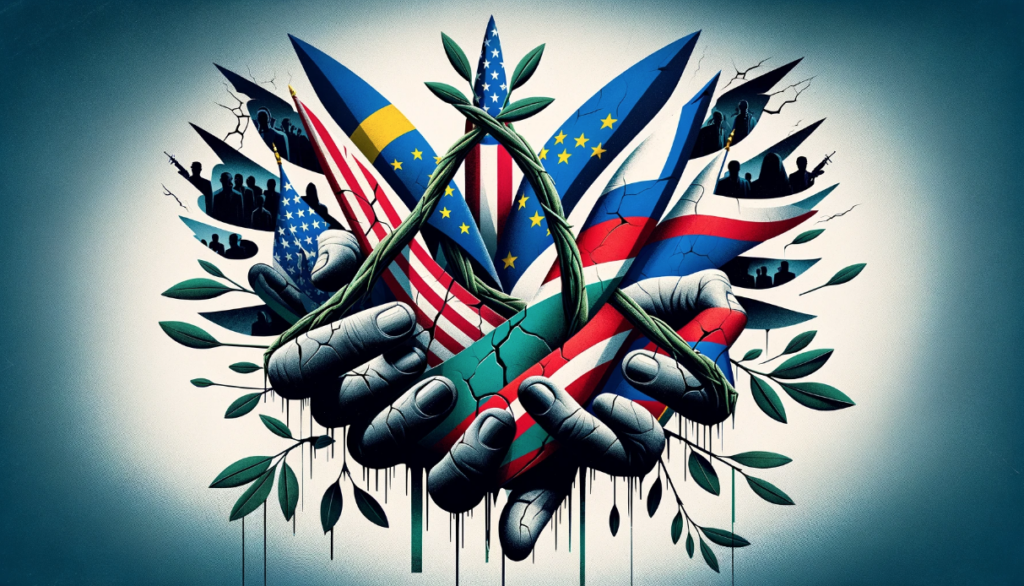In Letter, Hungary’s Viktor Orbán Touts Trump’s ‘Peace’ Plans for Ukraine

In a recent letter to the European Council President, Hungarian Prime Minister Viktor Orbán asserted that former President Donald Trump would “immediately” initiate peace negotiations in Ukraine if he wins the 2024 U.S. presidential election. According to Orbán, Trump has developed “detailed and well-founded plans” for peace, although specifics of these plans were not disclosed in the letter The Washington Post.
Orbán’s Diplomatic Blitz
Orbán’s assertion follows his meeting with Trump, part of a broader diplomatic mission that included visits to Russia, Ukraine, China, and the United States. Described by Orbán’s office as a “peace mission,” these efforts have been met with skepticism from European leaders, notably Ukrainian President Volodymyr Zelensky.
As a vocal critic of the EU’s staunch support for Ukraine, Orbán predicted Trump’s victory in the upcoming election and urged the EU to revise its strategy toward the Ukrainian conflict. He advocated for a negotiated settlement and renewed diplomatic communication between Europe and Russia.
European Response
Orbán’s suggestions were swiftly rebuffed by European Council President Charles Michel, who reaffirmed the EU’s unwavering commitment to supporting Ukraine. Michel emphasized the importance of backing Ukraine and its people “for as long as it takes and as intensely as needed.”
Diverging Views on Ukraine
The conflict in Ukraine, initiated by Russia in February 2022, has seen Russia maintain control over a significant portion of Ukrainian territory. The EU, alongside Ukraine and its Western allies, has consistently demanded the withdrawal of Russian troops as a precondition for any peace negotiations.
Orbán’s letter, first reported by the Financial Times, also proposed that the EU engage China as a mediator. He argued that China would only consider such a role if there were a high probability of success. Additionally, Orbán called for reopening diplomatic channels with Russia.
Michel responded by highlighting ongoing EU efforts to engage with China in the pursuit of peace in Ukraine. He reiterated that no discussions about Ukraine’s future could take place without the direct involvement of Ukrainian representatives.
Orbán’s Leadership in the EU
Hungary assumed the rotating presidency of the EU on July 1, a role that involves setting the agenda in Brussels. Orbán’s tenure has been contentious, with over 60 members of the European Parliament accusing him of exploiting his position to further his agenda. In a letter obtained by Politico, these MEPs demanded that EU leadership strip Hungary of its voting rights in the Council.
The MEPs accused Orbán of undermining EU unity and decision-making processes by unilaterally representing the EU in his diplomatic engagements. They argued that Orbán’s actions could not be allowed to continue, as they were contrary to common EU positions.
Reactions to Orbán’s Actions
Despite his unauthorized diplomatic missions, Orbán’s interlocutors, including Russian President Vladimir Putin, have sometimes acknowledged his role ambiguously. In one instance, Putin referred to Orbán as visiting “not only as our long-standing partner but also as the president of the European Council.”
In response to Orbán’s actions, some European diplomats have chosen to boycott meetings convened by Hungary. Ukrainian President Zelensky has openly criticized Orbán’s diplomatic tour, asserting that not all leaders possess the requisite authority to negotiate peace effectively.
The Broader Implications
Orbán’s recent actions highlight the complexities and tensions within the EU regarding its unified stance on Ukraine. As Hungary’s leadership continues to challenge EU norms, the bloc faces the challenge of maintaining cohesion and a consistent foreign policy approach amidst divergent national interests.

